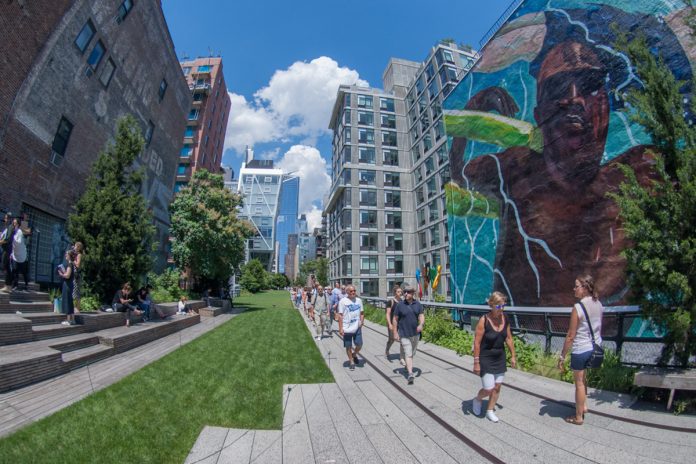

Dear EarthTalk: What are the health and environmental benefits of planting more trees in urban areas?
— B. Marsden, Buffalo, NY
Planting more trees in urban areas has numerous health and environmental benefits. Trees are essential to human health, and they provide environmental benefits by reducing air pollution, conserving energy, mitigating the urban heat island effect, and reducing stormwater runoff. According to the Arbor Day Foundation, a single mature tree can absorb up to 48 pounds of carbon dioxide (CO2) annually and release enough oxygen for two people to breathe comfortably all year.
Trees play a crucial role in improving air quality in urban areas. A study by the U.S. Forest Service found that trees in urban areas remove 711,000 metric tons of air pollution annually, saving the United States $6.8 billion in air quality-related health care costs. Trees absorb pollutants such as sulfur dioxide, nitrogen dioxide and ozone, which can cause respiratory problems and other health issues. Trees also absorb fine particulate matter (PM2.5), which is associated with asthma, heart attacks, and premature death.
Urban forests also help reduce the urban heat island effect, which is when urban areas are significantly warmer than rural areas due to human activity and infrastructure. Trees provide shade, which helps to reduce surface temperatures, and they also release water vapor through transpiration, which cools the air around them. According to a study published in the journal Landscape and Urban Planning, increasing tree canopy cover in cities can help reduce temperatures by up to two degrees Celsius.
In addition to their health benefits, trees also provide environmental benefits by reducing energy consumption. Trees provide shade, which reduces the amount of energy needed to cool buildings in the summer. According to federal researchers, properly placed trees can reduce a building’s air conditioning needs by up to 30 percent. Trees also act as windbreaks, which can reduce heating costs in the winter, helping to achieve up to a 50 percent decrease in annual heating costs. In fact, just three properly sited trees could save homeowners up to $250/year overall.
Trees are also essential in managing stormwater runoff. When it rains, stormwater runoff can cause flooding, erosion and water pollution. Trees absorb rainwater through their roots and help to reduce the amount of runoff. The U.S. Environmental Protection Agency calculates that a single mature tree can absorb up to 100 gallons of water per day.
Furthermore, planting more trees in urban areas can improve mental health and well-being. Studies have shown that exposure to nature and green spaces can reduce stress, anxiety and depression. A study published in the Journal of Environmental Psychology found that people who live in areas with more trees and green spaces report better mental health than those who live in areas with less greenery.
We also need trees to absorb all that excess CO2 we have spewed into the atmosphere that is causing global warming. Trees have always been essential to the survival of humans and other organisms, but maybe never so much as the present given the existential threat posed by human-induced climate change.
EarthTalk® is produced by Roddy Scheer & Doug Moss for the 501(c)3 nonprofit EarthTalk. See more at https://emagazine.com. To donate, visit https://earthtalk.org. Send questions to: [email protected].


















